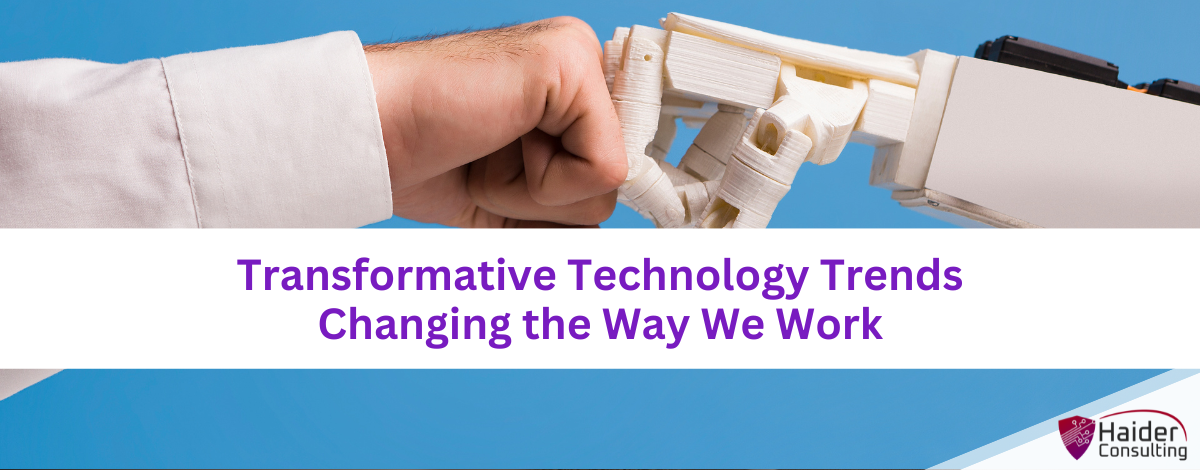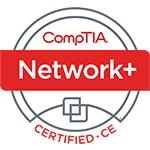🚀 2024 is in full swing, and it’s a year where the tapestry of work is already being rewoven with threads of groundbreaking technology. From AI’s mind-bending capabilities to the immersive realms of Web3, the workplace is undergoing a seismic shift. Let’s embark on a journey to uncover the tech trends reshaping our professional lives and how to harness their power for success.
Deciphering 2024’s Pioneering Work Tech Trends
1. Artificial Intelligence
AI and Generative AI are more than just trendy tech terms; they’re catalysts transforming the very fabric of our workplaces. These revolutionary technologies are redefining efficiency, enabling teams to transcend the mundane and embrace creativity and strategic innovation.
AI’s evolution is a testament to leaps in computing power, data proliferation, and algorithmic ingenuity. It’s no longer a futuristic concept but a present-day powerhouse, augmenting and automating a plethora of work aspects. From the intricacies of data analysis to the artistry of image creation, and the meticulousness of product design, AI is everywhere, enhancing productivity and sparking creativity.
Yet, with great power comes great responsibility. The rise of AI is not without its labyrinth of challenges and risks. Ethical quandaries, societal impacts, and the potential for workforce displacement loom large on the horizon. Navigating this brave new world calls for a thoughtful, human-centric approach to AI. It’s crucial to ensure that our workforce is not only ready but also resilient, equipped with the skills and support needed to flourish alongside these technological marvels.
2. Remote Collaboration Tools
In the last few years, we’ve seen a remarkable shift in the workplace. No longer confined by the walls of traditional offices, remote work has soared to new heights, propelled by an arsenal of groundbreaking technologies. Video conferencing, project management software, and cloud-based document sharing platforms are at the forefront of this revolution.
These innovative tools have become the lifelines of modern teams, enabling them to collaborate even across continents. Geographical barriers have dissolved, making way for a world where efficiency, teamwork, and real-time communication know no bounds. In this era of digital connectivity, distance is just a number, and the global workforce is just a click away. These tools are not just facilitating work; they’re redefining it, fostering a connected, dynamic, and versatile work environment like never before.
3. Hybrid Work Models
Hand-in-hand with remote collaboration is the hybrid work model. This model, a blend of remote and in-office work, has been catapulted into the mainstream by recent global events. It’s redefining work-life balance, slashing operational costs, and enhancing employee satisfaction.
But in spite of the benefits, it provides several challenges as well. Hybrid work-forces require additional literacy in technology, communication, collaboration, and time-management. The key lies in equipping the workforce with the right digital skills (that means training!) and tools for seamless transition and communication.
4. Web3: The Decentralized Internet
This term encapsulates the vision of a new internet era, one underpinned by decentralized technologies that are reshaping the very fabric of our online interactions. The pillars of this next-gen internet include blockchain, cryptocurrencies, smart contracts, and peer-to-peer networks.
Web3 isn’t just a technological leap; it’s a paradigm shift towards a more open, transparent, and democratic digital universe. It promises an internet where users command unparalleled control over their data, identity, and digital assets, heralding an era of enhanced security and personal autonomy.
But Web3’s influence goes beyond mere control – it’s a crucible of groundbreaking collaboration and value creation. Imagine decentralized autonomous organizations (DAOs) revolutionizing corporate structures, non-fungible tokens (NFTs) redefining digital ownership, decentralized finance (DeFi) challenging traditional financial systems, and social tokens reimagining value exchange in digital communities.
In the realm of work, Web3 is a catalyst for unprecedented innovation. It’s spawning new business models, platforms, and communities that champion creative breakthroughs. In fact, according to Cognitive Market Research, by 2030, Web3 is poised to unleash an economic tsunami, with projections indicating a staggering $49.10 billion in economic value.
5. Internet of Things (IoT) in the Workplace
IoT is turning offices into intelligent environments. Imagine a workspace that adjusts its own lighting and temperature, and wearables that offer insights into employee well-being. This interconnected world is not just about convenience; it’s about data-driven decisions and eco-friendly operations.
But as our offices become more interconnected, it’s important to make sure to keep them secured, too. This becomes challenging when many IoT devices are not developed with security in mind, and can lead to security breaches if not properly addressed!
6. Augmented Reality and Virtual Reality
AR and VR are not just for gaming anymore; they’re transforming professional training and design. They offer immersive, risk-free environments for learning complex tasks, making training your staff easier than ever. And they can even allow real-time visualization and modification in product development, accelerating innovation.
7. Cyber Security Advancements
As we dive deeper into the digital world, the need for robust cybersecurity has never been greater. As technology advancements make our day-to-day work easier, it’s also important to remember that many of these tools add weak points to our networks. And sadly, the antivirus of yesteryear cannot compete with advanced threats.
So don’t get left behind on cyber security! There are numerous advancements to help keep you, your employees, and your customers more secure. From biometric authentication to AI-driven threat detection, businesses are fortifying their digital fortresses to protect sensitive data and maintain trust in an increasingly online workspace.
The Ripple Effect on Tomorrow’s Workplace
All of these technology trends will end up having their own effect on our workplaces, in some way shape or form. Here’s a few of the bullet points to keep in mind, considering the challenges that may come, and the opportunities for growth.
- Flexibility & Balance: Remote collaboration tools are redefining the traditional office, offering flexibility that resonates with today’s dynamic workforce.
- Efficiency & Innovation: AI and automation are not just about doing things faster; they’re about doing them smarter, opening doors to new ways of solving problems.
- Smart & Sustainable Spaces: IoT is creating workplaces that are not just efficient but also empathetic to environmental and health concerns.
- Training & Engagement: AR and VR are revolutionizing how we learn and engage, offering new dimensions to employee development and customer interaction.
Navigating the Challenges and Opportunities
- Skill Development: The tech revolution demands a workforce adept at new digital tools and methodologies. This will require additional training to bring staff up to speed.
- Ethical & Privacy Concerns: In the rush towards digitization, we must not overlook the importance of data privacy and the ethical use of technology.
- Automation & Employment: Balancing technological advancement with human welfare is crucial to ensure that progress includes and uplifts everyone.
Your Compass in the Digital Transformation Journey
Embarking on this transformation can be daunting. But fear not! Whether it’s customizing AI integration or setting up a hybrid work model, our team of experts is here to guide you. We’ll help align these technological advancements with your unique business goals.
Let’s chat and navigate this exciting digital landscape together!






